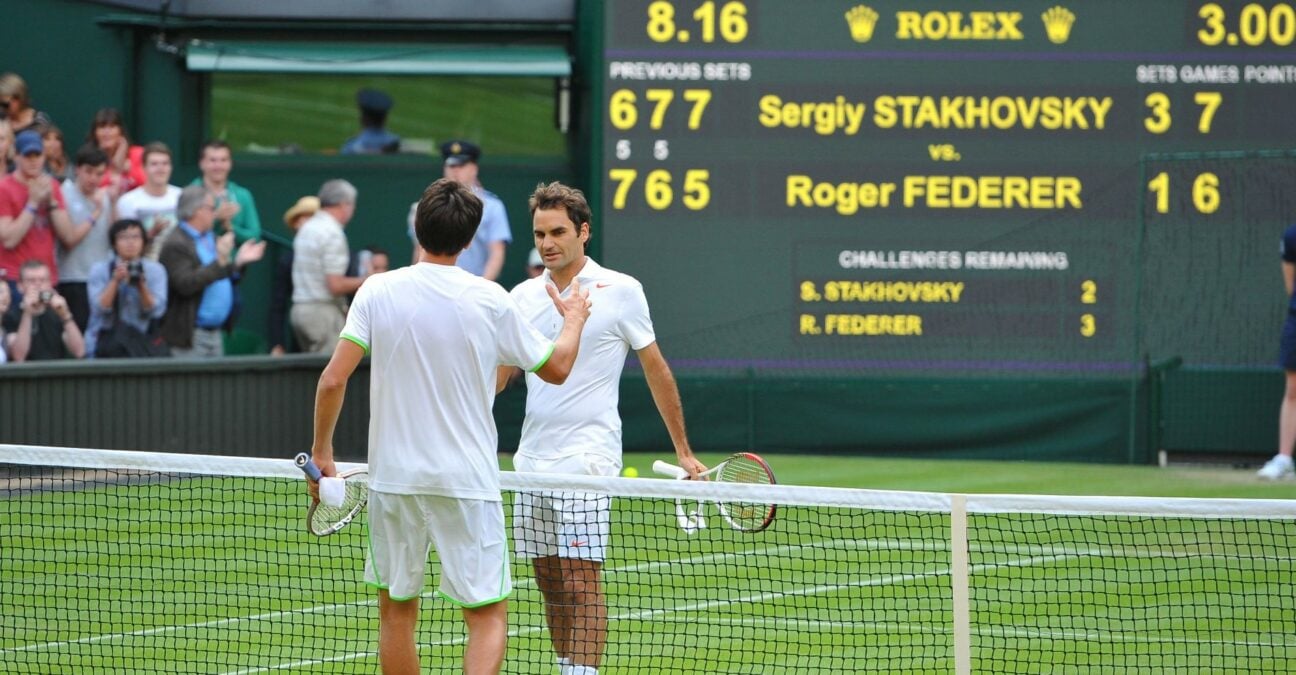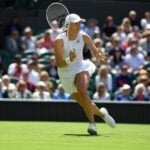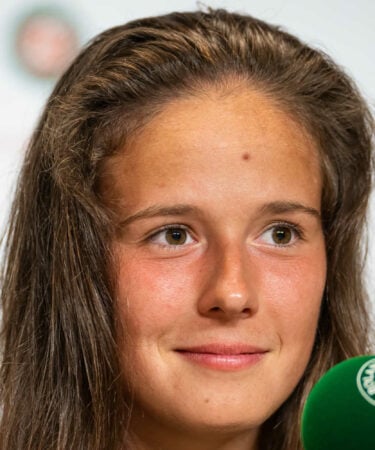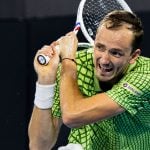Stakhovsky calls on players to use their platform to condemn Russia’s war in Ukraine
Ten years on from beating Roger Federer at Wimbledon, Sergiy Stakhovsky continues to fight for Ukraine
 Roger Federer defeated by Sergiy Stakhovsky at Wimbledon 2013 Tennis Magazine / Panoramic
Roger Federer defeated by Sergiy Stakhovsky at Wimbledon 2013 Tennis Magazine / Panoramic
Ten years ago, Sergiy Stakhovksy caused one of the biggest shocks in Wimbledon history when he beat Roger Federer in the second round.
It was the highlight of the Ukrainian’s career, which peaked at No 31 and yielded four career titles.
A decade on, however, the 37-year-old is now in Ukraine, fighting as a solider to defend his country, having retired from the Tour just two months before Russia invaded. Stakhovsky has been there ever since and as Wimbledon allows Russian and Belarusian players into this year’s Championships – after banning them last year – he wants journalists at Wimbledon to continue asking questions of those players who have chosen not to condemn the war.
“It would be very simple,” he said in an interview, part of which was used for an interview in The Guardian. “One would be, are they as individuals condemning the act of their countries against another sovereign country?
“And if they won’t answer that, there will be a very simple continuation (next question). What have they done with their platforms, with the possibilities they have? We’re not talking silently sending money because suddenly all of them are volunteers and sending money to God knows who. But what did they actually do with their platform? I’m talking about their media platform to somehow stop this, to retreat, to find a way to to change the thinking of the Russian population.
Stakhovsky: “I know that I’ve changed”
The interview with Stakhovsky took place on the eve of Wimbledon, where the war continues to be a major talking point. Aryna Sabalenka, the world No 2 from Belarus, had refused to condemn the war for several months and though she did finally say that she “did not support war” at Roland-Garros last month. At Wimbledon on Saturday, though, she said she would not be answering any questions about politics.
Not surprisingly, the war has taken its toll on Stakhovsky, especially when he sees players not using their platform to create change.
“It’s painful,” he said. “I know that I’ve changed. I became unfortunately more drastic. But living through things you live with – I’m more lucky because actually my rotations are a bit more frequent so I can actually get to see a kind of a normal life in Kiev, more frequently than the other soldiers – and still it’s hard. It’s hard. You see disaster, you see despair, you see devastation.
“And then you see these happy faces saying, we are against the war (but) we can’t do anything. The worst part is when they say ‘we cannot do anything, if there would be anything we could do, we would do it’. They didn’t even try. They did not bloody try to go there, use their massive platforms to try to reach people and say that this is what’s going on, it’s wrong, we should stop immediately.
Stakhovsky praises Kasatkina’s bravery
While most Russian and Belarusian players have said very little other than that they “don’t like war”, a couple have put their heads above the parapet. Andrey Rublev has used his platform to call for peace while Daria Kasatkina has angered Russia by openly opposing the war and also coming out as gay.
In the Guardian article, Stakhovsky praised Kasatkina as “having more courage than all the other Russian players combined” and he went further, explaining just why he admired her so much.
“Not only did she condemn what her country’s doing…I’m a person who is Ukrainian, who understands the mentality of Eastern Bloc, I would say, and for her to come out saying that (she is gay)…is I think even harsher than saying that she is condemning war in Ukraine. And she condemns war. Because in Russia they do not tolerate such things. For them it’s it’s a main point of bullying her, of harassing her and attacking her.
War also has devastating effect on tennis in Ukraine
Stakhovsky has no issue with Wimbledon lifting the ban – he understands they were left with very little choice after the ATP and WTA threatened to withdraw the licences of UK tournaments; he is more worried about the impact the war continues to have on his country, and its tennis.
“Wimbledon at least made a decent choice to try to (stop) those who really are entangled with the government, in terms of financial (support) or being sponsored by state owned organisations,” he said.
“But yet again, I mean, the longer the war goes, the harder it is for Ukrainian tennis to survive through this. So this is the last chance we have for the future stars to be brought up into and to represent Ukrainian tennis.”















